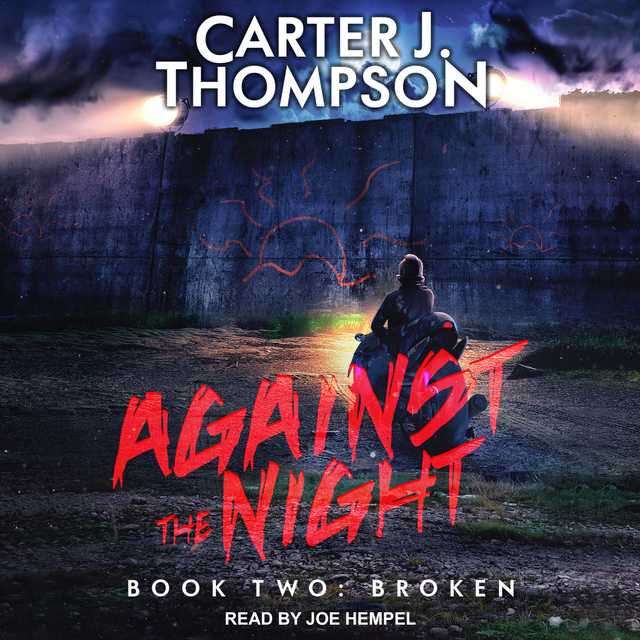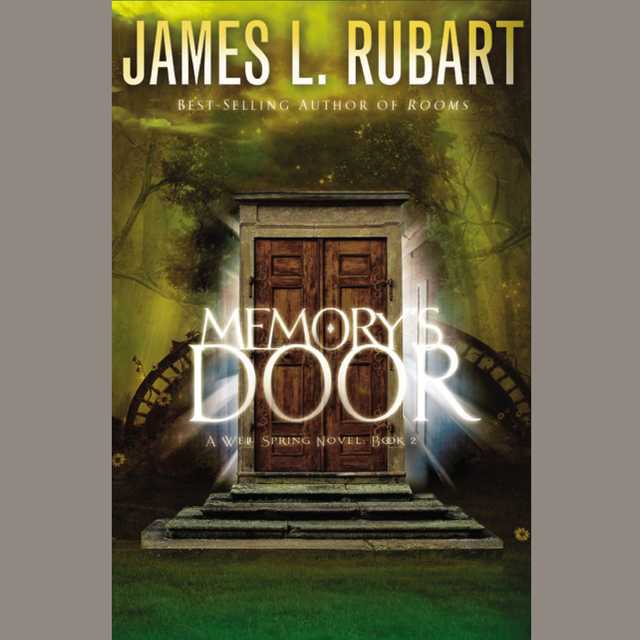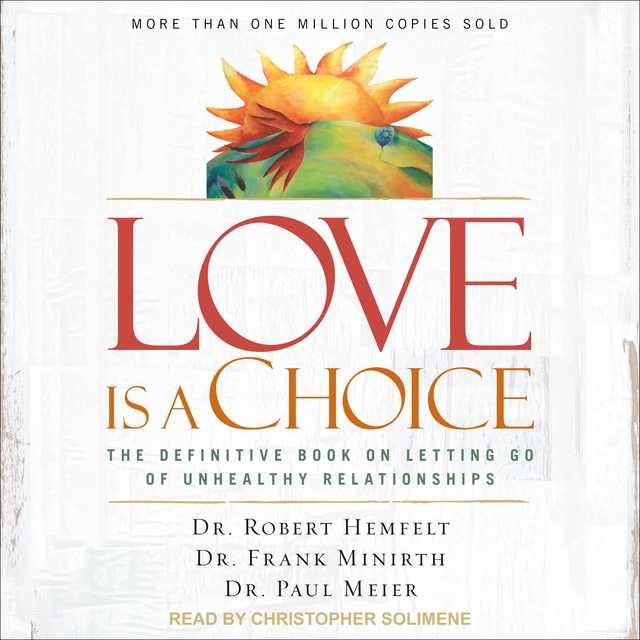Appleseed Audiobook Summary
A NEW YORK TIMES NOTABLE BOOK * A PHILADELPHIA INQUIRER BEST OF THE YEAR
“Woven together out of the strands of myth, science fiction, and ecological warning, Matt Bell’s Appleseed is as urgent as it is audacious.” –Kelly Link, Pulitzer Prize finalist and national bestselling author of Get in Trouble
A “breathtaking novel of ideas unlike anything you’ve ever read” (Esquire) from Young Lions Fiction Award-finalist Matt Bell, a breakout book that explores climate change, manifest destiny, humanity’s unchecked exploitation of natural resources, and the small but powerful magic contained within every single apple.
In eighteenth-century Ohio, two brothers travel into the wooded frontier, planting apple orchards from which they plan to profit in the years to come. As they remake the wilderness in their own image, planning for a future of settlement and civilization, the long-held bonds and secrets between the two will be tested, fractured and broken–and possibly healed.
Fifty years from now, in the second half of the twenty-first century, climate change has ravaged the Earth. Having invested early in genetic engineering and food science, one company now owns all the world’s resources. But a growing resistance is working to redistribute both land and power–and in a pivotal moment for the future of humanity, one of the company’s original founders will return to headquarters, intending to destroy what he helped build.
A thousand years in the future, North America is covered by a massive sheet of ice. One lonely sentient being inhabits a tech station on top of the glacier–and in a daring and seemingly impossible quest, sets out to follow a homing beacon across the continent in the hopes of discovering the last remnant of civilization.
Hugely ambitious in scope and theme, Appleseed is the breakout novel from a writer “as self-assured as he is audacious” (NPR) who “may well have invented the pulse-pounding novel of ideas” (Jess Walter). Part speculative epic, part tech thriller, part reinvented fairy tale, Appleseed is an unforgettable meditation on climate change; corporate, civic, and familial responsibility; manifest destiny; and the myths and legends that sustain us all.
Other Top Audiobooks
Appleseed Audiobook Narrator
Mark Bramhall is the narrator of Appleseed audiobook that was written by Matt Bell
Matt Bell is the author of the novels Scrapper and In the House upon the Dirt between the Lake and the Woods, as well as the short story collection A Tree or a Person or a Wall, a non-fiction book about the classic video game Baldur’s Gate II, and several other titles. His writing has appeared in The New York Times, Tin House, Conjunctions, Fairy Tale Review, American Short Fiction, and many other publications. A native of Michigan, he teaches creative writing at Arizona State University.
About the Author(s) of Appleseed
Matt Bell is the author of Appleseed
More From the Same
- Publisher : HarperAudio
- Abraham
- American Gods [TV Tie-In]
- Dead Ringer
- House of Sand and Fog
- Prey
Appleseed Full Details
| Narrator | Mark Bramhall |
| Length | 15 hours 44 minutes |
| Author | Matt Bell |
| Category | |
| Publisher | HarperAudio |
| Release date | July 13, 2021 |
| ISBN | 9780063040175 |
Additional info
The publisher of the Appleseed is HarperAudio. The imprint is HarperAudio. It is supplied by HarperAudio. The ISBN-13 is 9780063040175.
Global Availability
This book is only available in the United States.
Goodreads Reviews
Jessica
June 02, 2021
An extremely ambitious novel that isn't just riding a "cli-fi" trend. With multiple timelines and weaving in biblical and mythological stories, Bell builds three entirely separate and entirely full worlds for you to live in so you can watch people destroy them.Perhaps the smartest thing Bell does is not to set all of this in the future. 2 of the 3 stories are there, one in the nearer-future and one in the much-farther, but one goes back to the kind of story you know well, of settlers in the wilderness of North America when land was still open to whoever could muster the will and the strength to go out and take it. We have seen all kinds of dismal futures but Bell also gets us to take a new look at the past and to reconsider it through the Johnny Appleseed folk tale.Johnny Appleseed is, in our story, two brothers, Nathaniel and Chapman, who move through the unsettled lands building apple orchards so the land will be easier to settle, with fruit ready to go for the new occupants when they arrive. It starts out as a beautiful story but it's slowly tainted and complicated by this story and the juxtaposition of it against the others. Chapman, our protagonist for this storyline, finds himself questioning everything they are doing and their self-imposed exile, undertaken because Chapman himself is not a man but a faun who must be hidden from people.In the future, it isn't looking good. There is John, who scavenges through a mostly-deserted west after a massive corporation has basically taken over the country. And there is C-432, who is, well, it's not quite clear but C's world is a vastly different one, overrun by glaciers, where C seems to be the only living thing whose only task is to find any possible biomass and take it back to its mechanized home. These three stories are sometimes in parallel and sometimes intertwining, all of them centrally concerned with the land. It reminded me very much of Louisa Hall's SPEAK, which is a high compliment. It isn't easy to address similar themes across such disparate stories but both books do it very well.I won't lie, this took me a long time to read. It's a long book, but moving between the three plots, where often only one of them is in the middle of the action, it requires you to stick with it. I often sat down and read three chapters (one from each timeline) and then set it down to pick it up the next day. It's pretty uncommon for me to read a novel so slowly and actually stick with it but I really wanted to see where Bell was going and I'm glad I did. It was a challenge for me as a reader, I don't always gravitate to this style of prose, but I found it very rewarding and thoughtful and surprising.
Melissa
March 11, 2022
All the stars!!!This book! A new all-time favorite! My review absolutely will not do it justice. Such a SMART book – a seamlessly woven tale in three time periods: Colonial America, a dystopian future that seems all-too-near, and a sci-fi future.And yet, I don’t read sci-fi, and very little dystopian literature. True statement. I’ve surprised myself in the best possible way, thanks to Matt Bell’s storytelling and gorgeous writing. I contend that, if you care deeply about our planet, lament the actions of man against the environment over the centuries, and enjoy eco-fiction/cli-fi, and historical fiction – and AMAZING characters – you will fall in love with each storyline equally. If you had told me that would be the case for me, personally, I’d have scoffed. This was a mind-bender of a novel for me in the expert way myth was woven into three engaging stories, and in the way the three complicated stories connected at the end.This is my favorite kind of novel: one that can be read solely for story, or one that can be mined for metaphor, theme, and fable-myth-legend-story connections. There is so much beneath the surface that my sister and I decided we need to reread to see what else we might unearth. We had the best conversation about this book, which also inspired her son (a chronic gamer with mental health issues) to want to join in on our next book read. He eavesdropped on our speaker-phone conversation and sensed how excited we were about this book, and wanted “in.” I cannot explain how HUGE this is for him!Without sharing any spoilers, I will say that Bell’s choices – to place apples/trees front and center, to include characters who straddle the human and wild worlds, to use Johnny Appleseed as a historic compass – was nothing short of brilliant in a cli-fi novel. And to drape the entire story over the Greek myth of Orpheus and Eurydice… OMG! Brilliant! (You don’t have to know Greek mythology to enjoy this book, but you will want to learn more about this myth after reading, and more about Johnny Appleseed).If you belong to a book club that likes to dive deep into books and have really thought-provoking conversations, this is the book for you - even if you think, “my group doesn’t read this kind of fiction.” In fact, I want to come to your book club and talk about it some more! This novel forces us to examine the stories we choose to believe/tell ourselves about ourselves. It begs the question of whether we’re born into the stories that define us, or if we can actually control them. Does myth and legend mirror reality? It sheds light on the ways religious beliefs – and yes, the stories of the Bible – have justified and shaped the human relationship to the natural world. The Biblical references – only visible if you have the knowledge – are powerful, insightful, and a perfect way to tell the story of a world ravaged by man’s ambition. It starts with an apple. And it starts with story.What an excellent commentary on the environmental quandary we humans have put ourselves in. I cannot recommend this novel enough. A book touching upon want and desire, love of Earth, settler colonialism, and love of story. I’m so excited to hear the author speak this weekend at Tucson Festival of Books! But before I conclude, a sampling of the delicious writing in this powerful novel: As first light breaks, he stalks silently away from their campsite, climbing the last ridgeline of this Pennsylvanian mountain pass to watch the night’s rainfall trickle off into morning mist, admiring the fine accidental melody of clean water falling branch to branch …Nathaniel speaks in the eager language of the settler, proud of stewarding the land, of improving the country: for him the Territory is earth not put to its right uses until its swamps are drained and its forests made passable to man and horse and ox and wagon, until roads climb every hill and bridges cross every river, until the mountains are mined for their deep treasure troves of ore, riches owed to any hardy man strong enough to drag their glitter into the light. … The given world wasn’t perfect, Chapman remembers Nathaniel saying, but it could be made so by the efforts of good men.If you loved The Overstory or Greenwood, chances are good you'll appreciate this one, even though it is wholly unique and different from the others.
Crystal
March 31, 2021
A breathtaking work of fiction, both in its scope and its execution. Matt Bell writes beautiful and evocative passages that stay long in the memory. Appleseed is a cautionary tale of our future, but one that harkens to the past. I loved Bell's ability to weave fairytale and myth into a story of science and environment and man's deadly impact on nature itself. A strange, gorgeous, sometimes harrowing novel, Appleseed is a must-read.
Jemppu
September 09, 2022
Some fascinatingly presented exploration on transformations this book had. And, while the story felt it droned on at places, I kept appreciating the steady sprinklings of rawness, which kept the prose alive and the observer attentive.The handling of the topic of humanity's relationship with ecosystem drew easy comparisons to How High We Go in the Dark, due to both of these books' Ursula K. Le Guin Prize nominations (and thus both being on reading radar at this same moment in time).One other work that came back in flashes for shared topics was Agustina Bazterrica's Tender is the Flesh.(And - as I failed to mention it in the obscure triviality of the reading updates before - for the single gimmick of printing whole living beings, mind went back to the sample seen in Luc Besson's 5th Element).Captivatingly imagined, and nicely fluidly expressed. Rounded up._____ Reading updates
Alix
June 21, 2021
Appleseed is a book that will make you examine your relationship with the natural world and whether you are helping or hurting it. Appleseed is set in three different timelines with three seemingly different stories. Yet, there are a few threads that connect these stories such as humanity’s impact on the world as well as the apple tree. This book focuses on climate and how we as humans have effectively destroyed our planet to the point of no return. We see the start of this destruction from the origins of America into the future where everything has become a frozen tundra. Interspersed in this novel are also sci-fi elements, mythology and some light fantasy. All three timelines are fascinating and it illustrates how the destruction of earth could have been avoided. Humans are just too greedy and selfish. There are a few things that didn’t work for me though. I felt the story was too long and could have been tightened up. I had issues with both Eury’s and John’s methods to save the world, but maybe that was the point. Maybe we aren’t supposed to agree with either. There were also a few things I found dumb in relation to the faun timeline. I’m still on the fence with the mythology/fantasy elements and whether it was really needed. It does connect with the future timelines but I didn’t really find it that effective. Overall, I enjoyed Appleseed’s unique take on climate fiction. This is one book sure to leave you thinking how you can leave the world a better place.
Darwin8u
September 14, 2021
I'll come back to finish and review this, but DAMN. Go pick it up and read it.
Judy
August 31, 2021
Appleseed challenged me in unexpected ways. Combining the past, the not too distant future and the far future, combining myth, technology, social psychology and outlandish speculations, this is the climate fiction book of the year in my opinion.The story ranges and circles around the three time periods culminating in surprising connections between them. Matt Bell manages to interweave personal stories, the natural world and the unnatural exploitation by humans of that world. If you have enjoyed books by Octavia Butler, the Fifth Season trilogy by N K Jemisin, The Water Knife by Paolo Bacigalupi, and other such books, you could be amazed by Appleseed as well.
Liz
January 14, 2023
18th century, 50 years from today, 1000 years in the future. All connected through apples.This book was like nothing I've read. I'm not even really sure how to do a review. The symbolism, connections, characters were all so well thought out. Like I said previously, I don't think I'm smart enough to figure it out on my own. I wish i had an English/Lit class to talk it through with. I'd love to read this again with a group and talk through it together. Even tho I know that i missed so much, this book was incredible. Reminded me of Oryx and Crake by Margaret Atwood.
Allen
July 09, 2022
One of the joys of genre fiction is its ability to explore big ideas through a literary lens. Sci-fi in particular can display an audaciousness with regard to the concepts it espouses. It also offers a special sort of storytelling flexibility, its trappings and tropes opening up a long runway for writers to create something that is both thought-provoking and narratively engaging.Matt Bell’s new novel “Appleseed” is precisely that kind of engaging provocation. A tale told in tryptic, blending myth, near-future tech utopianism and climate apocalypse, the book winds together three disparate timelines, all connected by the shared roots of a goal that must be met in different ways in different times.It’s also a book about humanity’s quest for connection, a quest that sometimes leads us down some counterintuitive paths, all in the name of finding that interpersonal closeness that we all seek. “Appleseed” illustrates that operating for the greater good can be noble, but it also depends on just who is deciding what that “greater good” should be.In our first thread, we’re in the untamed west of the American continent in the mid-18th century. Chapman is a faun, a half-man-half-beast wandering the wilds alongside his human brother Nathaniel. Nathaniel has a plan to make his fortune – move from place to place planting apple orchards ahead of the steady westward expansion, then returning to collect compensation from the settlers to come who have availed themselves of the pre-planted bounty.Chapman, meanwhile, is haunted by his otherness – he seeks not just a tree, but a Tree, one whose fruit might give him the guidance he seeks. However, he is haunted – haunted by what he is, yes, but also by mysterious forces of potentially nefarious intent.In the late 21st century, a man named John moves through the largely desolate American West. The ravages of climate change have led to societal breakdown; rising seas have rendered coastal areas uninhabitable and everything west of the Mississippi has become an arid wasteland. John is fighting against the monolithic EarthTrust corporation, an entity whose massive power masks even more massive plans – plans that John’s early work made possible.Despite his misgivings, he must try and find a way back into this world that he abandoned in hopes of upending a master plan that will forever alter the global landscape.Lastly, we land in the far-flung future, a thousand years hence. A lonely creature named C – the latest recreated entity in a long line – is tasked with hunting down any organic material remaining beneath the massive sheets of ice that coat the planet. But when an accident reveals other instructions and offers a chance to reengage with other living things, C undertakes a mission far more dangerous than any that he – or any of his predecessors – has ever done.Along the way, C discovers that life finds a way, even if it isn’t necessarily what he expected, leaving him to do everything in his power to give that life a fighting chance.“Appleseed” strikes an interesting balance between the bleakness of the characters’ situations and the hopefulness of their actions, finding ways to celebrate indomitability of spirit in the face of odds that become ever more overwhelming. That balance cuts to the core of the human condition, with each story offering a glimpse at that core from a slightly different angle.The craft and construction here is particularly impressive. Each one of these stories could easily stand alone on its own merits with nary an edit – Bell has built three very real, very distinct worlds, each with their own characters and conflicts – and yet they are all very much thematically intertwined. To create three compelling stories – three compelling realities – and bind them together seamlessly? That’s some first-rate writing, no doubt about it.Whether we’re talking about the repurposing of American frontier legend with a healthy dose of much older mythology, a tale of a corporate techno-state run amok amidst a leadership vacuum or the search for sustainability in a world left frozen by anthropocentric hubris, the underlying themes are the same.“Appleseed” is not an optimistic book – it casts far too many shadows for that – but it is definitely a hopeful one. That might seem like a semantic difference, but to my mind, it is a very real one. Finding reason to hope in the face of seeming hopelessness is a key component of the human condition – a condition that Matt Bell deftly and thoroughly explores here.
Ian
December 29, 2021
A burgeoning genre of speculative science fiction oriented on the impending climate disaster we face as a species is currently being banded about as something call "cli-fi." I hate the name, but I full imagine you're going to see a hell of a lot more of it in the coming decades. So if you want to see what the fuss is all about, might I suggest you start with what could possibly be the high water mark for the kind of cross-pollinated genre of dystopian technocratic realism and climate disaster speculation: Matt Bell's Appleseed.The novel is divided into a triptych of narratives: Chapman, a half-man-half-faun and his older, all-human brother, Nathaniel are traversing a pre-industrial age Ohio and Midwestern U.S. planting apple orchards all along the way, John and his band of eco-terrorists infiltrating a hydra-headed agro-techno-mega corp that essential has re-enslaved people with the promise of a better tomorrow, and then C-433, an entity in the distant future traversing a glacial earth in search of organic life.Bell utilizes the power of folkloric myth and legend to build out the story here to great effect. Weaving in the mythical with the real, there's something tangible feeling about the world within Appleseed so that none of it feels far-reaching, unrealistic, or hyperbolic. In fact, perhaps some of the saddest, most bleak passages take place in Chapman's chapters as he watches men ebb further and further west as the wrest control of the wilderness and harness it into something "usable" for humanity.As meditative as it is on the ecological doom and perhaps nostalgic pull humanity has towards nature, the book is also quite full of action sequences, especially in the final third of the near-future plotline as the power-drunk Eury plans to literally seize control of the world's climate via a unique technology developed by her company, Earthtrust.Bell's vision of where humanity is headed is bleak and there are few promises of hope, but what struck me most in the book is that while there are clear villains within the story, those villains are a morally righteous crusade--however misguided or mad-seeming those plans may be. The characters push the reader to question their own positions, where the stand on how to deal with the mess of our own making, the mess centuries in the making.Probably one of the best reads of 2021 for me, and I cannot recommend it enough.
Kim
November 09, 2021
This is climate fiction with an ambitious premise: to tie the seeds of the past to the consequences in our present, and then to dump them all into our troubled future. Bell writes in literary prose, the language best suited for expressing his love for the natural world. Each character represents an element of humanity's reign over the earth. The contrast is clear between those who approach their environment with reverence and a spirit of sacred connectedness, versus those who approach every inch of land and every living thing as something to conquer and control. Bell cleanly separates the difference between what we mean by *the Earth* and by *the world*.The novel unfolds in segments from all three timelines, which slowly gravitate into an overlapping synthesis of one story: the history of humankind's insistence on dominating an ecosystem of which we all are a part. The ways in which the main characters in the past, present, and future mirror each other are fascinating. We can see ourselves in parts of each of them. Hubris is a fatal flaw which finds endless modes of expression, a lesson we ignore at our peril.
Frequently asked questions
Listening to audiobooks not only easy, it is also very convenient. You can listen to audiobooks on almost every device. From your laptop to your smart phone or even a smart speaker like Apple HomePod or even Alexa. Here’s how you can get started listening to audiobooks.
- 1. Download your favorite audiobook app such as Speechify.
- 2. Sign up for an account.
- 3. Browse the library for the best audiobooks and select the first one for free
- 4. Download the audiobook file to your device
- 5. Open the Speechify audiobook app and select the audiobook you want to listen to.
- 6. Adjust the playback speed and other settings to your preference.
- 7. Press play and enjoy!
While you can listen to the bestsellers on almost any device, and preferences may vary, generally smart phones are offer the most convenience factor. You could be working out, grocery shopping, or even watching your dog in the dog park on a Saturday morning.
However, most audiobook apps work across multiple devices so you can pick up that riveting new Stephen King book you started at the dog park, back on your laptop when you get back home.
Speechify is one of the best apps for audiobooks. The pricing structure is the most competitive in the market and the app is easy to use. It features the best sellers and award winning authors. Listen to your favorite books or discover new ones and listen to real voice actors read to you. Getting started is easy, the first book is free.
Research showcasing the brain health benefits of reading on a regular basis is wide-ranging and undeniable. However, research comparing the benefits of reading vs listening is much more sparse. According to professor of psychology and author Dr. Kristen Willeumier, though, there is good reason to believe that the reading experience provided by audiobooks offers many of the same brain benefits as reading a physical book.
Audiobooks are recordings of books that are read aloud by a professional voice actor. The recordings are typically available for purchase and download in digital formats such as MP3, WMA, or AAC. They can also be streamed from online services like Speechify, Audible, AppleBooks, or Spotify.
You simply download the app onto your smart phone, create your account, and in Speechify, you can choose your first book, from our vast library of best-sellers and classics, to read for free.
Audiobooks, like real books can add up over time. Here’s where you can listen to audiobooks for free. Speechify let’s you read your first best seller for free. Apart from that, we have a vast selection of free audiobooks that you can enjoy. Get the same rich experience no matter if the book was free or not.
It depends. Yes, there are free audiobooks and paid audiobooks. Speechify offers a blend of both!
It varies. The easiest way depends on a few things. The app and service you use, which device, and platform. Speechify is the easiest way to listen to audiobooks. Downloading the app is quick. It is not a large app and does not eat up space on your iPhone or Android device.
Listening to audiobooks on your smart phone, with Speechify, is the easiest way to listen to audiobooks.






























